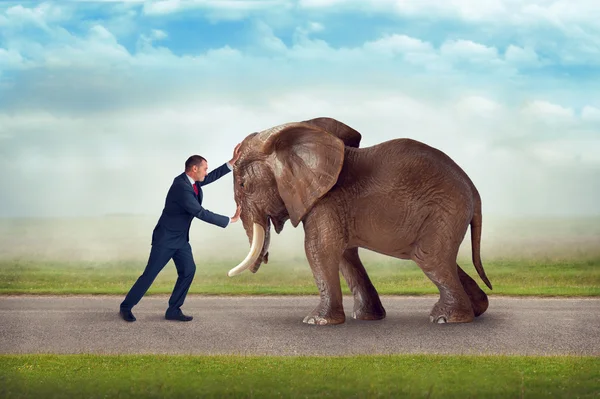Surah 33:53 is one of many verses in the Quran that set my teeth on edge the moment I read them. It is as out of place as ‘a gold ring in a pig’s snout,’ (Proverbs 11:22). Mohammed was irate over some of his guests coming too early and staying too late after they enjoyed a delicious meal together. They did not have enough sense to know when to leave and go back to their own homes. So, the prophet had a word from Allah:
“O you who believe! Do not enter the Prophet’s homes for a meal, unless you are invited, and do not wait for its preparation. But if you are invited, then enter. And when you have eaten, then disperse, without lingering for conversation. This irritates the Prophet, and he shies away from you, but Allah does not shy away from the truth. And when you ask his wives for something, ask them from behind a screen; that is purer for your hearts and their hearts. You must never offend Allah’s Messenger, nor marry his wives after him, ever, for that would be an enormity with Allah” (Surah 33:53).
Can you really believe that such a trivial revelation, this much ado-about-nothing, is engraved on eternal tablets in heaven?
Another strange this that I discovered when I first became aquatinted with the Quran was how austere certain (not the open-minded) Muslims got irate when someone publicly tore up or burned the Quran, yet that is exactly what Caliph Uthman did to thousands of earliest copies of the Quran twenty years after Mohammed’s death. Are the earliest copies of a manuscript not the most authentic, the most reliable?
I have found this most baffling. Why re-write that which was already perfectly written; copy yes, but re-authorize, re-vamp, re-canonize, never! How do you make something perfectly passed down to you more perfect?
We know the reason; it was because the Caliph’s, who succeeded the now dead Mohammed, found so many different translations of the Quran all disagreeing with each other and thought it best to burn them. That was the remedy. They sent them to the flames. So much for totally preserved, unquestionable manuscripts. How did Caliph Uthman and his editors know which copies were legit and which were not legit, which to burn and which not to burn? (Sahih al Bukhari 6:61:510). The more the truth became known, the more Islam tottered upon its pedestal. Continuous research shows that it has fallen like a Dagon idol (I Samuel 5:3-4).
In great haste and desperation, twenty years after Muhammad’s death Caliph Uthman ordered five standardized versions of the Quran to be produced for all of Islam. How awesome. Such a simple solution. So, let us now search for them through all the libraries and great mosques of Islam. Surely, they were transmitted and translated perfectly in all 144 chapters without a word, a letter not even a sentence missing. But Alas, like a dodo bird none, not one can be found. They are extinct. They were not copied on papyrus as were the Bible manuscripts, which quickly deteriorate over time, but on vellum the skins of young animals such as lambs and young calves. These survive for hundreds of years. Where are they?
Here is where science comes to the rescue. We pick up the earliest manuscripts that we do have and place them under the ultraviolet light of truth and see where its deep light will lead us. Will we discover a secret path that will lead us back to the seventh century when sacred manuscripts were written? It will be exciting to discover the greatest manuscripts ever written, that no one in history can compare to. Finally, with the sword of Allah, and with the voice of a trumpet, let us slay the mythological giant that dares say we do not have a Quran as perfect as the one in heaven. Let a billion voices shout it from the highest and furthest minarets, “The Quran is perfect in every way!”
I want to hold in my hands the Qur’an that has never been changed, that is as pure as the eternal and flawless as the Quran in heaven. The third Caliph Uthman finally held one in his hands in 652 AD. I want to be able to do the same. But we search in vain for such a book. The sacred pages of the original Quran have grown wings and taken flight somewhere in the direction where the four winds blow.
Ph.D. scholar Dan Brubaker, who is a manuscript expert, has done a five-year study on the best extant and earliest Quran Manuscripts and has found thousands of variances between them; not dozens, not scores not hundreds but thousands. One hole proves that it is not a waterproof bucket. One error proves that the Quran is not an eternal, unchangeable, perfectly preserved document from heaven document.
So much for the boast of Yusuf Alli’s claim to the Qurans’ infallibility, “We have, without doubt sent down the Message [the Qur’an]; and We will assuredly guard I (from corruption” (Quran 15:9).
Providentially, the indelible ink and silent facts of history speak louder than the loud voices of blind optimism. Facts are such stubborn things. Following the facts leads you to the infallible conclusion that the Quran is a fallible book, a manmade book, one of the most fallible in all of history, and certainly not an exact copy of any eternal book in heaven as eternal as God himself. Lies spoken with your hand over your heart, lies written on beautiful, embroidered pages, lies bound between two gold-leafed covers, are just as deadly as lies spewing out of the mouth of a pathological liar.
Jesus said, “You shall know the truth, and the truth shall make you free… I am the way, the truth, and the life. No one comes to the Father except through Me” (John 8:32; 14:6).
Respectfully Submitted
Dr. Robert Bryant

